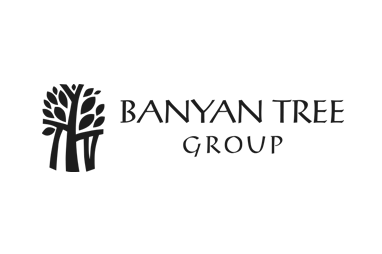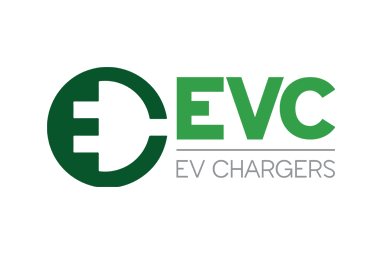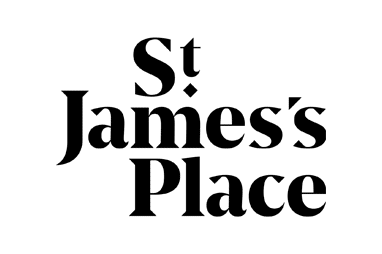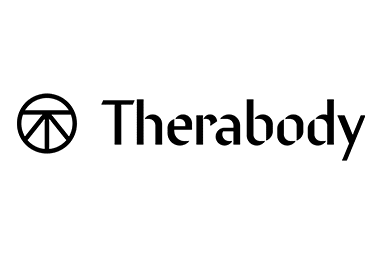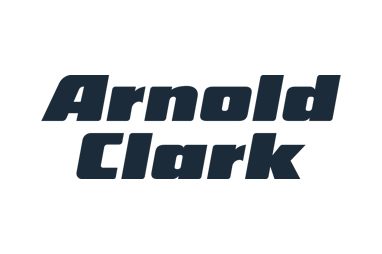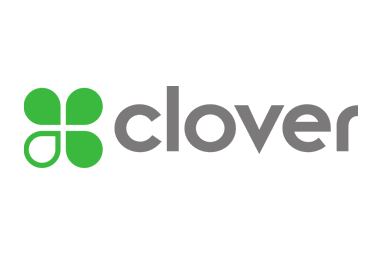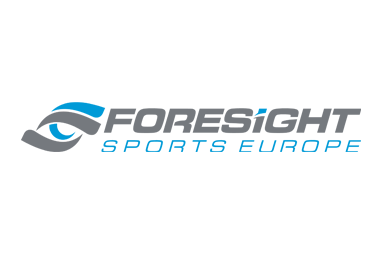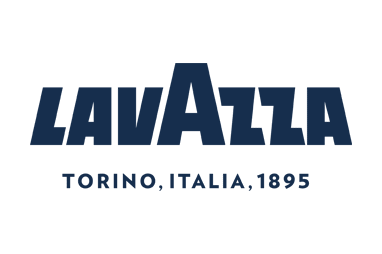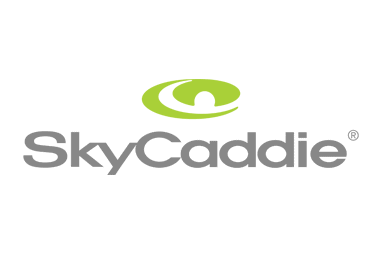COVID-19 Limited Companies scenarios in Ireland
COVID-19 Limited Companies scenarios in Ireland
The PGA have created various scenarios to provide guidance on government support for self employed Members in Ireland.
Background
The Professional Golfers’ Association is aware that self-employed PGA Professionals use a variety of business models in order to deliver their services. Almost every PGA Professional is currently affected by business interruption due to the COVID-19 emergency, while government advice and support is evolving almost daily.
Against this background, the Association is keen to provide some clarity to members on what government support is currently available under a number of scenarios, depending on how their individual businesses are constituted, and how this support might be accessed. This information is for guidance only. It is not intended to be prescriptive and legal and accounting/tax advice should be sought where appropriate.
Types of business model
The key business situations under consideration are:
- Sole trader or partnership
- Limited companies
- Multiple income sources e.g. employed for some services, self- employed for others
LIMITED COMPANIES
Definition
A limited liability company in Ireland is a form of business which is legally separate from its owners and directors. It can be incorporated on-line through the Companies Registration Office (“CRO”), which confers on it the status of being a separate legal “person”. The Company Name needs to be reserved through the Irish Trade Register and, once incorporated, the limited company is governed by the requirements of The Ireland Companies Act 2014 and its own Articles of Association, and must make returns of information to the CRO.
The most prevalent type of limited company applicable to the business activities of PGA Professionals is the private company limited by shares. In general, this is a popular structure for small businesses. The owners of the company are protected by limited liability so the amount they have to lose if the company fails is strictly limited. This differs from a sole trader or partnership, both of which are unincorporated businesses where there is no legal distinction between the owner and the business, and consequently leaves the owner potentially having to sell or surrender their personal assets to meet the debts of the business.
Private limited companies in Ireland must have a minimum of one director, a Company Secretary who must be resident within the EU, a physical working office and a minimum share capital of €100. New companies benefit from 0% corporation tax in the first two years of incorporation.
This type of business model is popular with many PGA Professionals since it combines the potential to share in profits with a clear restriction on personal financial liability.
As a separate legal entity, a limited company is subject to taxation in its own right, and needs to register with the Revenue for Corporation Tax , and directors will also be subject to PAYE on whatever salary he or she earns as an employee of the company. Unlike sole traders, companies are subject to annual audit requirements.
Examples of primary activities
Scenario 1 - Club Professional with retail activities, a number of employees and who is himself primarily salaried within the business
Scenario 2 - Golf Range Operator with retail activities, a number of employees and who pays herself primarily by way of dividend
Scenarios 1-2 could be equally applicable to Club Professionals and Golf Range Operators.
The scenarios that follow are intended to be samples of situations which might arise, and should be treated as indicative to allow the PGA member to best assess his or her own likely situation in relation to the COVID-19 financial challenges.
He’s been operating his business as a private limited company for many years and is beginning to think ahead to his retirement.
John provides a retail service and attracts the normal retainer and commission mix, but feels less inclined nowadays to do much coaching or custom fitting, instead employing a qualified assistant professional and a trainee professional who assist him in providing these services.
His business has been profitable over the years, and his revenue streams remain strong, enabling him to afford his staff.
He decided, in the last few years, to take a modest salary from the business to give him a secure regular income, and sometimes tops this up, as he feels necessary, by declaring a small dividend should cash flow and profitability allow.
John’s business is VAT registered, and under the terms of his contract with the golf club, he does not need to pay business rates on the professional’s shop premises.
He traded throughout 2019/20, until such times as the golf courses in Ireland were closed. John’s business is now effectively mothballed until the current crisis plays out.
He has decided to temporarily lay off his two staff members and seek to access funding under the terms of the COVID-19 Wage Subsidy Scheme. His Assistant has worked with him for four years and using the scheme will allow John to keep him registered as an employee and enable him to get the Assistant back to work quickly after the crisis.
Fortunately his trainee, although a relatively new employee, was on the payroll on 29 February 2020 and John had made a payroll submission identifying the trainee as an employee between his start date and 20 March. Consequently, the trainee is also able to remain registered as an employee and be included on John’s COVID-19 Wage Subsidy Scheme application.
Before making his decision to lay off his staff, John tried to project his likely turnover for the period from 14 March to 30 June 2020 given that his shop has had to close, his team is unable to coach or custom fit and his commission income has totally dried up. He concluded that his income in what is usually a busy period has probably dropped by around about 80% from the normal and therefore he can clearly demonstrate that he is experiencing significant economic disruption because of the COVID-19 pandemic, meaning he is unable to fully pay his normal wages and outgoings.
He has gone ahead and made a self-declaration for the company to the Revenue in support of its application for inclusion on the COVID-19 Wage Subsidy Scheme, which John processed by logging in to the Revenue On-Line Service myEnquiries section. The scheme is intended to run for 12 weeks from 26 March 2020.
John has discussed the situation with his staff, who fully appreciate the need for the temporary lay-off, and welcome the fact that their income will be largely secured for the coming weeks. The staff will not qualify for a social welfare payment through the COVID-19 Pandemic Unemployment Payment since John has implemented the COVID-19 Wage Subsidy Scheme.
John remains keen to try and top up the wages of his staff to their current level, as long as his finances allow, and will keep this under review when the scheme moves to a subsidy payment, based on different income threshold bands identified within the scheme, during May 2020. At that time, the subsidy available to employers will be based on 70% of the average weekly take home pay of the employee, computed after the deduction of tax, USC and PRSI and based on average pay in January and February (which is of course a particularly quiet time for golf clubs).
Having concluded on how best to deal with his staff, John had to consider his own financial situation. Since he is a salaried employee of the company earning €40,000 per annum, he is likely to be eligible for inclusion in the company’s COVID-19 Wage Subsidy Scheme.
In the meantime, John has decided to take advantage of the Revenue’s decision to suspend interest on late payment of PAYE liabilities for February, March and April and to delay payment of these liabilities for the time being to assist his cash flow position during this time of uncertainty.
For the time being, he is keeping watch on the whole COVID-19 situation, particularly as it relates to golf and to his business, so that he is ready to react when activity restarts. During this recess, John is making plans for progressing his business when the pandemic is over, and since his turnover looks like being significantly lower than normal, he is considering making an application for a MicroFinance Ireland COVID-19 Business Loan. He believes he meets the criteria since his annual turnover and profits are likely to be more than 15% down on normal, he has less than 10 employees and his turnover is well below the €2m maximum.
John will spend the next few days assessing his needs and, if he feels it appropriate, making his application for a loan of between €5,000 and €50,000 via MicroFinance Ireland.
The funding could be particularly useful in the short term since the loan attracts 0% interest in the first 6 months, and there are no penalty clauses for early repayment, so it may suit John as a short term kick-start to get his business active again.
Because he has retail as the core part of his business, he is keen to try and turn over whatever stock he can as soon as he can. The government, through Enterprise Ireland, are aiming to help small businesses develop an on-line trading capability and should John decide that would work for him, he may be eligible for a grant through this scheme.
He has also been made aware of the new Business Continuity Voucher which is now available through Local Enterprise Offices. This voucher is worth up to €2,500 in 3rd party consultancy costs and can be used by businesses to work with qualified experts, selected from existing Local Enterprise Offices and Enterprise Ireland Panels, to develop strategies to respond to the pandemic. John is not sure whether this will be of use to his business but, as part of his plans for progressing his business after the pandemic, he will consider applying for a Business Continuity Voucher by completing the form available here.
The turnover from John’s company’s retail activity exceeds €75,000 per year, so he has been registered for VAT for some time. His bi-monthly VAT submission for January/February 2020 was submitted on time by 19 March, and he was able to take advantage of the suspension of interest on late payments to delay paying his VAT for the time being, and thus support his cash flow position within the business. The late payment of interest suspension has since been extended to cover the return due for March/April 2020 and, while he has to submit his VAT return on time by 19 May, he can again delay his VAT payment for that period, should he so wish.
He should, however, be mindful of accumulating deferred debts, such as his VAT and PAYE repayments and any MicroFinance Ireland COVID-19 Business Loan, to avoid excessive calls on his cash flow in future months.
In summary, at this time John can take advantage of the Republic of Ireland government’s COVID-19 Wage Subsidy Scheme as a method of keeping himself, his Assistant and his trainee registered as employees, and possibly the MicroFinance Ireland COVID-19 Business Loan scheme to position himself for restarting his business. John can also delay payment of his VAT instalments for the first four months of 2020 without incurring interest and penalties. He can also consider whether the Business Continuity Voucher might be of use to support his business planning activity, and if he introduces an on-line retail activity to move some of his stock, he may qualify for a grant through Enterprise Ireland’s On Line Retail Scheme.
She provides a retail service, specialises in club fitting, and provides a coaching service, part of which is delivered by a small team of PGA Professionals and trainees who are employed by the company on a salary, supplemented by commissions for the coaching they deliver. Sarah owns 100% of the share capital of her company.
Sarah accounts for all of her business activities through the company, her business has been profitable over the years, and her revenue streams remain strong, enabling her to afford her staff. Her returns to the Companies Registration Office and her Corporation Tax returns to the Revenue are up to date, her business is registered for VAT and PAYE, and as a stand-alone facility, business rates apply to the premises.
Sarah takes a small salary of €18,000 per annum from the business to provide her with some regular income, but relies primarily on declaring and paying dividends out of profits after Corporation Tax (at the current main rate of 12.5%). The dividends she receives are subject to deduction of Dividend Withholding Tax (“DWT”) of 25% (from 1 January 2020) on the gross dividend. The DWT requires to be submitted to the Revenue within 14 days of the end of the month in which the dividend is paid. When Sarah files her income tax return, dividends may need to be taxed at the higher tax rate of 40% depending on her income level.
Sarah considers the dividends option to be the most suitable and attractive for her circumstances since there is flexibility over the time in which you need to declare dividend payments. For instance, they can be declared and paid at the end of the financial year, and at points throughout the year, as long as the company is turning a profit. Sarah can choose to have a dividend declared and payment made at a time that best suits the business’s cash flow situation and her own income needs.
Sarah’s business traded throughout 2019/20, until such time as the golf courses throughout the Republic of Ireland were closed. The business is now effectively mothballed until the current crisis plays out, although there is light at the end of the tunnel with the Irish Government having announced a phased return to golf in stages starting from 18 May 2020. Sarah is keeping an eye on the situation since it is not yet clear how this return will apply to Golf Range Operations and coaching in particular.
Sarah has no work for her team of PGA Professionals to do during the lockdown, and has decided to temporarily lay all of them off and seek to access funding under the terms of the COVID-19 Wage Subsidy Scheme. Using this scheme will allow Sarah to keep her team registered as employees and enable her to get them back to work quickly after the crisis.
Sarah always complies with the Revenue’s submission deadlines and is able to demonstrate that her staff were on the payroll on 29 February 2020 and that a payroll submission had been made to the Revenue between 1 February and 20 March. She had been able to keep her team on the payroll over the winter months because the terrible weather in winter 2019/20 meant that most of the golf courses in the country had been closed for a number of months and people had been flocking to her facility to access coaching and to hit golf shots. This activity, of course, ceased entirely on lockdown and consequently Sarah can clearly demonstrate that her company is experiencing significant economic disruption because of the COVID-19 pandemic, meaning she is unable to fully pay the normal staff wages and other business outgoings.
Sarah became aware of the Revenue’s decision to suspend interest on late payment of PAYE liabilities for February, March and April and decided to delay payment of these liabilities for the time being to assist her cash flow position during this time of uncertainty. She is currently liaising with the Revenue to agree a deferral arrangement or phased payment plan for her outstanding PAYE debt.
Sarah has made a self-declaration to the Revenue in support of the Company’s application for inclusion on the COVID-19 Wage Subsidy Scheme, which she processed by logging in to the Revenue On-Line Service myEnquiries section. The scheme is intended to run for the 12 weeks from 26 March 2020, and has been subject to a number of changes since its inception. The most significant is that, from 4 May 2020, the subsidy moves to a tier based system based on an employee’s weekly average take-home pay. The maximum subsidy is now 85% of average weekly take-home pay.
Sarah has discussed the situation with each of her staff, who fully appreciate the need for the temporary lay-off, and welcome the fact that their income will be largely secured for the coming weeks. Staff will not qualify for a social welfare payment through the COVID-19 Pandemic Unemployment Payment if Sarah has named them in her COVID-19 Wage Subsidy Scheme submission.
In a couple of instances, particularly in relation to her lower paid staff, it was financially more advantageous to the individual to claim the COVID-19 Pandemic Unemployment Payment and in these circumstances Sarah agreed to lay off the members of staff and will meet with them after golf restarts to consider whether there is a position available to them.
With her business effectively closed down, she got to thinking about her Business Rates payments which are a drain on her cash flow. The Irish Government has confirmed with local authorities that they should agree to defer rates payments due from the most immediately impacted sectors, and in particular the leisure sector, until the end of May. Sarah has contacted her local authority to start discussions about the deferral of her Business Rates.
Having concluded on how best to deal with his staff, Sarah had to consider her own financial situation. As an employee, she is eligible for inclusion in the COVID-19 Wage Subsidy Scheme.
Because Sarah takes a low gross salary of €18,000, with combined taxes in the region of 16%, her net income is around €15,200 or €292 per week, which would attract a subsidy of around €248. She considered instead applying for the COVID-19 Pandemic Unemployment Payment but believes any difference in entitlement not sufficiently material to compromise her ability to react quickly to the restart of golf.
For the time being, Sarah is keeping watch on the whole COVID-19 situation, particularly as it relates to golf and to her business and is making plans for progressing her business when the pandemic is over. She is considering making an application for a MicroFinance Ireland COVID-19 Business Loan and believes her company will meet the criteria since her turnover and profits are likely to be more than 15% down on normal, she has less than 10 employees and her turnover is well below the €2m maximum.
The minimum available loan is €5,000 and the funding could be particularly useful in the short term since the loan attracts 0% interest in the first 6 months, and there are no penalty clauses for early repayment. It may therefore suit Sarah as a short term kick-start to get her business active again.
Sarah is also aware of the new Business Continuity Voucher which is now available through Local Enterprise Offices. This voucher is worth up to €2,500 in 3rd party consultancy costs and can be used by businesses to work with qualified experts, selected from existing Local Enterprise Offices and Enterprise Ireland Panels, to develop strategies to respond to the pandemic. Sarah is keen to mitigate any impact of the current crisis on her long-term business ambitions and is keen to take advantage of this support if her application is successful.
The turnover on Sarah’s business exceeds €75,000 per year, so she has been registered for VAT for some time and her bi-monthly VAT submissions are always submitted on time. She has been able to take advantage of the suspension of interest on late payments to delay paying VAT for January/February and March/April for the time being, and thus support cash flow position within the business. She will continue to submit VAT returns on time and, as with her PAYE payments, will liaise with the Revenue to either defer payment until a specified date, or agree a phased payment schedule.
In summary, at this time Sarah can take advantage of the Irish government’s COVID-19 Wage Subsidy Scheme as a method of keeping herself and her staff as employees, while supporting a couple of members of staff in their preference to apply for the COVID-19 Pandemic Unemployment Payment, since their circumstances make it more financially attractive.
She may also be able to access the MicroFinance Ireland COVID-19 Business Loan scheme to position herself for restarting her business. Sarah can also delay payment of certain VAT and PAYE instalments without incurring interest, but is doing the right thing by liaising with the Revenue to agree payment terms. She can also work towards applying for a Business Continuity Voucher to support her business resilience and planning activity, and may be in a position to defer payment of her Business Rates.






